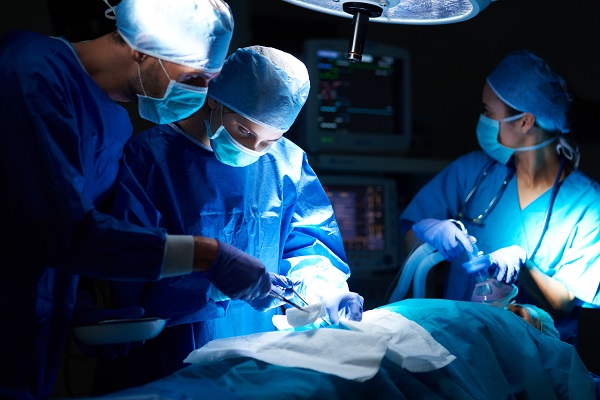
Going Through Laser Surgery
Laser surgery is a type of surgery that uses a laser beam to cut through the layers of tissue in the body to treat different medical conditions. There are several types of lasers used in surgeries but all have one thing in common: they can be precise and very effective. The high-energy laser light is aimed precisely at the target area where it then vaporizes or cuts through tissues, blood vessels, nerve bundles, and other structures that are in its path. It is considered more effective than traditional surgeries because it limits bleeding, reduces recovery time, and minimizes scarring of the skin. People can be wary of getting one, however, because of the nagging doubt in their minds on how it is to actually go through laser surgery.
Types of Laser Surgery
Before going through laser surgery, it would help to know that many types exist so you can pick what’s suited to your needs. There are different types of laser surgeries and the type used will depend on the patient's condition. Some of the most types include:
- Scar Revision - this is a type of cosmetic surgery wherein signs, such as those resulting from burns, are removed to give a normal appearance to a person's face or body.
- LASIK Eye Surgery - this is a type of laser surgery performed on the eyes to correct vision problems such as shortsightedness, farsightedness and astigmatism.
- Ablative lasers - this is a type of surgical procedure that uses high-energy beams to vaporize tissues or boils. The vaporization destroys the tissue so it no longer grows back.
- Non-ablative lasers - this is a type of laser surgery that enhances the ability of the skin to heal itself by destroying parts of the outermost layer. Non-ablative lasers are used for collagen production, acne scars, fine lines and wrinkles, sun damage, age spots, freckles, stretch marks, cysts and other irregularities on the skin.
- Pulsed-dye laser - this is a type of laser surgery applied to blood vessels and vascular lesions. The pulsed-dye laser emits light that reaches the innermost part of vessels and other structures in tissue, destroying them and preventing bleeding.
- Light-based treatment - this is a type of laser surgery that uses light rays to treat cancerous cells, premalignant lesions, vascular abnormalities and other conditions.
How Laser Surgery Works
It works by focusing highly concentrated beams of light on the desired target. The beams are so powerful they can burn through tissues and blood vessels in their way to reach their goal. The light is so focused that it can cut through tissues that are an inch deep or more depending on the type of laser used.
The beams of light in laser surgery are produced by passing ordinary light rays from different sources, such as sunlight, fluorescent lamps, lasers, and specialized bulbs through crystals to give them their high-energy properties. Depending on the type of laser surgery, these beams of light can pass through or reflect off mirrors and reach their target in a fraction of a second.
Does Laser Surgery Hurt?
Going through laser surgery mostly doesn’t hurt. While it may hurt a little when the laser beam touches a person's body, most types of laser surgeries do not really involve any pain in the area being treated. The laser beam essentially vaporizes tissues, which prevents pain from being felt in the surrounding areas. This is because when the skin cells are destroyed, chemicals are released that block pain signals to a person's brain before they can be felt. This lets doctors conduct their treatments without much trouble since there won't be any pain to contend with.
For this reason, most patients who have gone through laser surgeries claim that they neither felt pain nor had any memory of what happened during the operation. However, it is also important to note that certain types of laser procedures do require cutting and stitching up wounds so there will be some discomfort and mild pain at this stage. Also, if a person is under general anesthesia during laser surgery, he or she may feel pain when coming out of it.
On the whole, they are painless procedures that leave little or no memories of what happened during the treatments, because they either numb the area being treated so there are no sensations to be felt or use special chemicals to block any pain signals from reaching a person's brain.
If you are thinking of getting laser surgery done, it's a good idea to consult Dr. V S Rathore. He's the best hair transplant surgeon in Kolkata, and his clinic provides top-notch services in other surgical treatments too, like laser surgery and liposuction. He is supported by a team of professionals who create a safe environment with no room for mistakes in your surgery.
For More Information Follow Us On:
Facebook | Instagram | LinkedIn | Twitter | Google My Business









